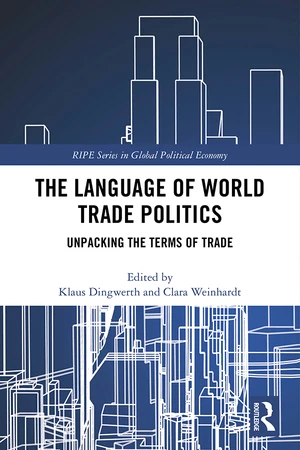Outcomes in major multilateral trade negotiations are conventionally explained as resulting from interests weighted by (trading) power. Offering a different overview of the concepts we use to talk about the international trade regime, this edited collection puts the ideational foundation of world trade politics centre stage, and critically examines the terms in which we make sense of world trade politics. The concepts used to make sense of world trade politics are often employed strategically, making some aspects of reality visible and others invisible. Reflecting upon ten key concepts from âtradeâ itself to âprotectionismâ and âjusticeâ, this book poses two broad questions: first, how and by whom have the meanings of different terms used to describe, challenge and defend world trade politics been constructed? Second, how have the individual terms changed over time, and with what consequences? The editors and contributors draw on a broad range of theoretical approaches, from post-structuralism or cognitivism to normative theory, shedding new light on why certain trade issues and agendas win out over others, who benefits from the current system of trade governance, and what contemporary challenges the World Trade Organization faces. In doing so, the book speaks to a growing and diverse constructivist literature in International Political Economy. This book will be of interest to scholars, students and policy professionals working within International Relations, International Political Economy and economics.
Price history
▲12.26%
Sep 8, 2022
€52.78
Oct 25, 2021
€47.02

